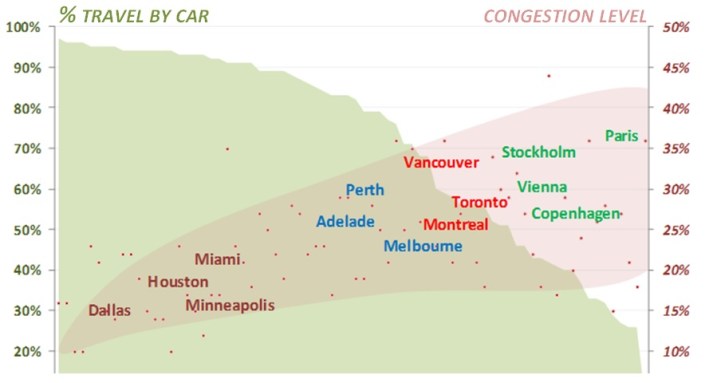
Here's a great visualization of what cities get out of the billions of dollars spent on highways and road expansion: more traffic.
Justin Swan at City Clock made this chart showing the relationship between congestion levels, as measured by TomTom, and car use. (Yes, it has no X axis -- here's Swan's explanation of how to read his chart.) The pattern that emerges is that the places with the most traffic and driving also have the least congestion.
We know from the work of Joe Cortright that the traditional definition of congestion is a poor way to measure people's ability to get around their city -- because it doesn't reflect the actual time people spend traveling. Drivers in Dallas and Houston may stew in gridlock less than people in other cities, but they spend more time on the road.
Swan notes that the most congested places are also the places where people have good travel options that don't involve driving. His chart suggests that car congestion itself is not the problem that needs to be solved -- as long as there are other ways to get around, in a congested city few people will actually have to sit in traffic.





